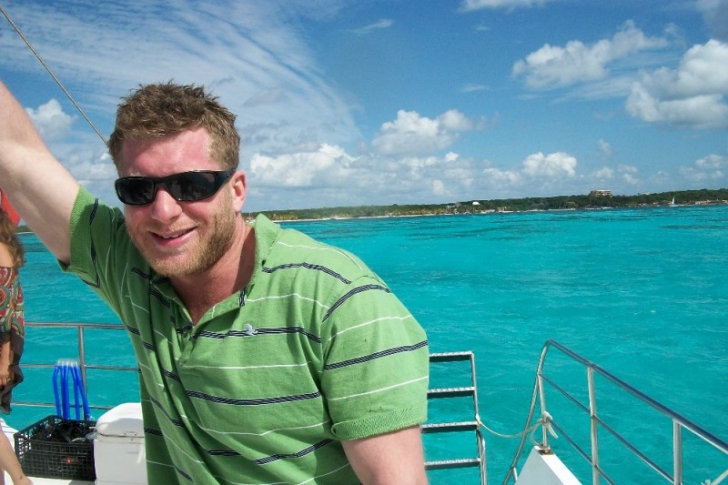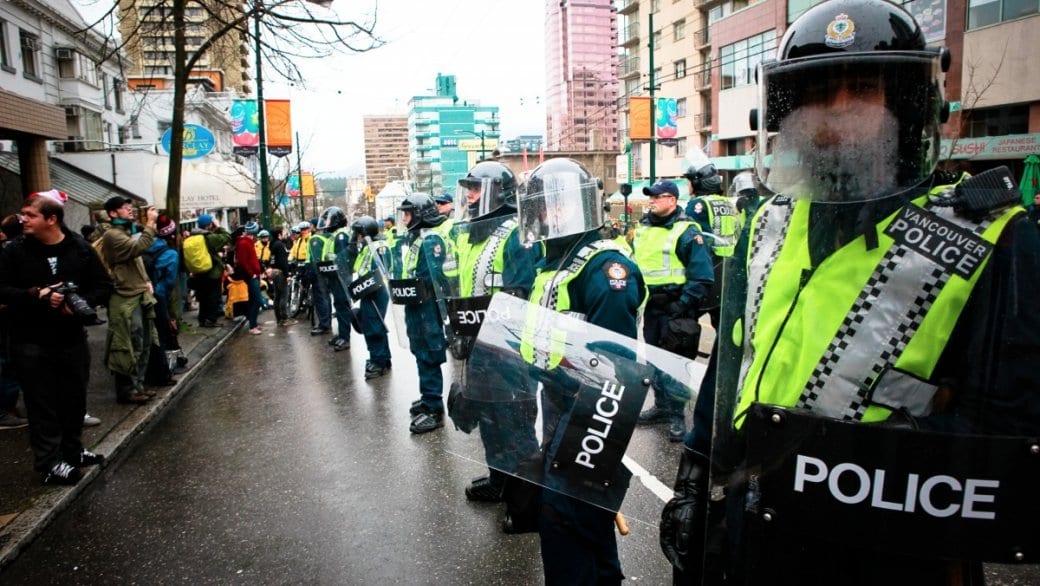When Myles Gray’s body was brought to the funeral home, the funeral director recommended the family have a closed casket ceremony. His mother, Margie Gray, believes that’s because his injuries were so horrific.
Myles was 33 when he was killed by seven Vancouver police officers in 2015.
He wasn’t armed. There’s nothing to indicate that he was having a mental health episode. Though all of the officers reported injuries, we don’t know the extent of those injuries or whether or not they were self-inflicted, say from the use of their own pepper spray.
A toxicology test revealed he wasn’t drunk or high, but we’ll never know if any of the police officers were on any drugs, because they weren’t tested.
In fact, 18 months after he was killed, we know next to nothing. Neither does his family, who have been publicly pushing for answers, while the seven officers that killed Myles are still on active duty. (Full disclosure: his cousin is a friend of mine.)

It’s very unlikely any of the officers will be charged. In fact, there hasn’t been a police officer in all of British Columbia that has been convicted for murder in an on-duty death in decades — the first time charges were even brought was in 2014, and they were eventually stayed.
No one was charged when Tony Du, a 52-year-old man who was having a schizophrenic episode, was shot within 25 seconds of an officer arriving at the scene.
When Yao Wei Wu was severely beaten by two plainclothes Vancouver Police Department officers who were responding to a domestic violence call at the wrong address, no one was charged. The Delta Police Department investigated the incident and concluded the officers acted appropriately.
And then there’s Paul Boyd. A bipolar man who was off of his medication at the time, Boyd was 39 years old when a VPD officer killed him. He was shot after he attacked police with a chain and a lock. But a few years after his death, a video emerged showing Boyd in the moments after he was first shot.
He can be seen crawling on the ground, the chain outside of his grasp. The officer then shoots him three more times, including in the head. Boyd wasn’t killed by an officer in fear for his life. He was executed.
No charges.
I’m recounting this grim history in response to statements made last month by some LGBT activists opposed to Black Lives Matter Vancouver’s petition to exclude the Vancouver police from the Pride parade.
“I believe the concerns of Black Lives Matter are valid and of concern,” Velvet Steele told Daily Hive. “However, they are not all shared amongst many people.”
Steele called the VPD one of the most “progressive police forces in the country.”
I have no idea if that’s true. But if it is, it says more about the state of disrepair of Canada’s police forces than it does about the VPD.
This is the same police department that allowed one of North America’s most prolific serial killers to prey on women in the Downtown Eastside, unchecked for two decades because of the systemic bias against indigenous sex workers that pervaded the department.
Though the VPD, under the leadership of former Chief Jim Chu, has made positive changes over the years to address some of their past mistakes, the bodies of Vancouverites killed by their own police force keep piling up. Many of them are mentally ill. And yes, few, though some, of them are black. But that’s more a function of Vancouver’s demographics than proof of the VPD’s egalitarianism.
Black Vancouverites are still subject to brutal treatment by the cops. Solomon Akintoye is right now suing the VPD for allegedly beating him after mistaking him for a crime suspect.
Even outside of the systemic racism — especially against indigenous people that report after report has demonstrated is at the core of the VPD — it’s clear that there is little accountability within the force.
BC’s recently created Independent Investigations Office, modelled after Ontario’s extremely flawed Special Investigations Unit, is understaffed and underfunded. And they’ve singled out the VPD, along with the RCMP, for being deliberately uncooperative during their investigations.
The situation is getting worse across British Columbia, where the number of police killings rose sharply from 2009 to 2015.
The activists in favour of polite engagement with the police argue that we shouldn’t impose an American narrative on a Canadian situation. And they’re right. The VPD’s problems are entirely homegrown and require a homegrown response.
For years, indigenous people in Vancouver have done much of the work to push for police accountability in the city, while white, South Asian and East Asian communities have largely sat on their hands.
And now a group of black Vancouverites is taking up the fight. The rest of us should commend their work, because though they’re doing it to assert their own humanity, we will all benefit from a more accountable police force.
I don’t really care whether or not the VPD will march in the Pride parade.
What I do care about is getting justice for Myles Gray, Tony Du, Paul Boyd and the many other people the VPD has killed without being held to account.
Vancouver isn’t special. The sooner we realize it, the better.

 Why you can trust Xtra
Why you can trust Xtra


